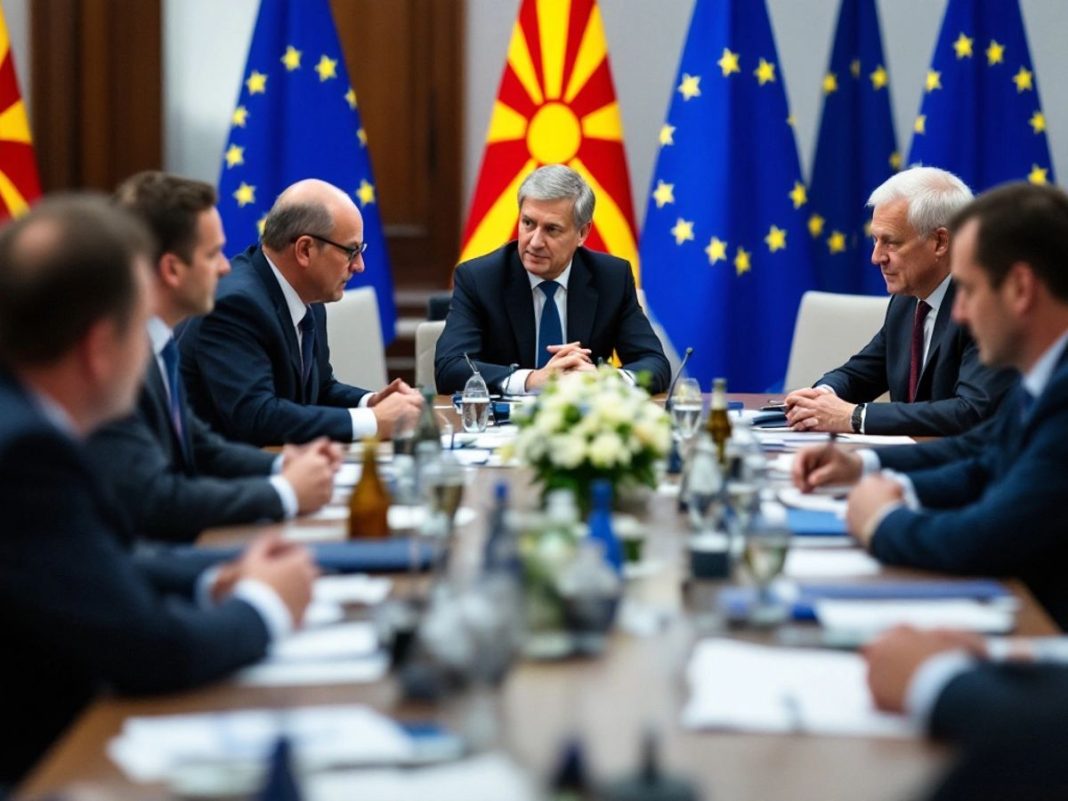European Commission President Ursula von der Leyen recently visited North Macedonia, urging the country’s political parties to collaborate on constitutional reforms essential for advancing its European Union accession bid. During her visit, she acknowledged the progress made by North Macedonia but emphasized the need for further action to resolve ongoing disputes with Bulgaria that have hindered the accession process.
Key Takeaways
- Ursula von der Leyen praised North Macedonia’s reform efforts but stressed the importance of constitutional changes.
- The ongoing dispute with Bulgaria has delayed North Macedonia’s EU accession process.
- The previous government agreed to amend the constitution to include a reference to a Bulgarian ethnic minority but lacked the parliamentary support to implement it.
- Prime Minister Hristijan Mickoski’s conservative government insists on Bulgaria’s approval of North Macedonia’s EU membership without additional conditions before making constitutional amendments.
- The urgency for EU accession has increased due to geopolitical tensions, particularly following Russia’s invasion of Ukraine.
Background on North Macedonia’s EU Accession
North Macedonia has been on the path to EU membership since it began accession talks with the bloc in 2022. However, the process has been complicated by historical disputes, particularly with Bulgaria, which has raised concerns over minority rights and historical narratives. The EU’s decision to advance Albania’s accession process independently has added pressure on North Macedonia to resolve its issues swiftly.
The Role of Political Cooperation
Von der Leyen’s call for cross-party support in North Macedonia highlights the necessity of political unity in achieving constitutional amendments. She stated, "We are almost there, but we know it’s about the constitutional change that your country has committed to." This statement underscores the importance of collaboration among political factions to ensure that the necessary reforms are enacted.
Geopolitical Context
The urgency of North Macedonia’s EU accession is further amplified by the current geopolitical climate in Europe. The ongoing conflict in Ukraine has raised concerns about stability in the region, prompting the EU to reassess its approach to the Western Balkans. The EU aims to reassure these nations of their membership prospects, which could serve as a stabilizing factor in the region.
Next Steps for North Macedonia
As von der Leyen continues her tour of the Western Balkans, her message is clear: North Macedonia must act decisively to amend its constitution and resolve its disputes with Bulgaria. The EU’s commitment to the region remains strong, but the path forward requires cooperation and political will from North Macedonia’s leaders. The coming months will be critical as the country navigates these challenges in its quest for EU membership.

